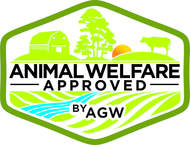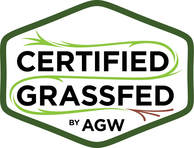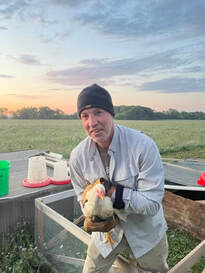 Well, it’s Fall and that’s a wrap on our pastured chicken season! Our newest venture on the farm, and something that customers have asked for years, this summer we finally felt established enough with the beef cows and pigs (and house construction/moving) to get it going. It was a lot of work and we had some learning curves, but it went very well and we are very happy with our product! Whenever we start a new venture we go back to “why” we are doing it, and to our mission statement and values to guide us on “how” to do it. There are many ways to raise chickens and many decisions to make in farming, but with our core values in mind:
we decided Certified Organic and Pastured was the way to go. So, what does that mean? and how exactly do we raise them? We get our chicks at one day old from a local Wisconsin hatchery and bring them straight to one of our small barns that was converted into the chicken brooder. Here the chicks grow under warming lights until they are old enough to regulate their own body temperature. Once they grow feathers, around 4 weeks, they can do so and are ready go outside! On pasture, they live in 2 chicken tractors that Paul and his cousin built (based on Joel Salatin’s designs book) and that are all around protected from predators. Paul moves the chicken tractors, manually, EVERY day- where they have fresh grass and bugs to eat, fresh air, and plenty of room to roam. We feed a certified organic poultry grain mix, also from a local, Wisconsin, organic mill. We put out fresh water daily with organic apple cider vinegar to help protect the chickens from bacteria or viruses. At around 8-10 weeks, we bring the chickens to get processed at a family owned, USDA organic processor, also here in Wisconsin. We pick them up 1-2 days later and at this point, they are ready to go to your homes! 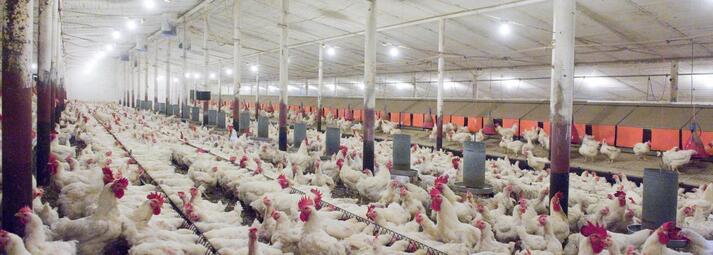 How does this compare to conventional, factory farmed chicken? Factory farm chickens are your good old, very inexpensive chicken at the supermarket. I’ve seen them for as low as $.99/lb, and a whole, already cooked, rotisserie chicken at Costco will cost you merely $5!! But what’s behind this incredible “deal”?
What about “Free Range Chickens”? Now, you might think this is better because they are “free to roam” but this is one of those labels that big ag probably negotiated with the USDA to approve for their marketing purposes. It means very little, but it sounds good. The requirement here is to “have access” to outside part time- but it is very loosely regulated and inspected. A free range bird could easily be one that spends most of its time inside a barn with hundreds or thousands of other bird friends—there may be a door to the outside, but there's no guarantee that your bird will ever venture out there, or that there's even much grass or soil to be found if it does. There is no requirement for these birds to spend ANY time outside; just to have “access”. and Certified Organic chicken? Let’s begin by stating the fact that most "organic chicken" in the supermarket is owned by two big producers, Tyson or Purdue. There are three requirements with organic that make them slightly better, sure:
However, the last one is where I see a bit of a problem. Conventional chickens require around 0.78 to 0.85 square feet per bird, while organic chicken requires 0.85 square feet per bird, which is really not that different! While access to the outdoors and fresh air is part of the organic standards for chickens, it is widely known that the USDA hasn’t really enforced this, and again, access to outdoors could be a concrete slab. It also doesn’t specify how much time they must be allowed to spend outside or how much space they should be given. Organic feed is another downside. It is well known that organic chicken feed at factory farms is many times imported from China. Our organic, pastured chickens also have significant health benefits when compared to conventional chickens. You have the obvious benefits of organic- NO antibiotics ever, NO pesticides, no herbicides or any kind of chemicals in their feed or our land. And NO GMO feed. But pasture-raised chicken also contains 50% more vitamin A compared to conventionally raised chicken. (This nutrient plays an important role in supporting good vision, cell division and growth, a strong immune system, and skin health.) Also, in a 2008 study published in the journal “Poultry Science”, Portuguese researchers discovered that pasture-raised chicken have significantly higher amounts of omega-3 fatty acids than chickens that do not have access to fresh forage. Lastly, while standard poultry feed is supplemented with small amounts of vitamin E, it doesn't come close to the bounty of vitamin E that chickens get from fresh pasture. And this vitamin E gets passed on to you, the consumer! And as we mentioned earlier, you are also at a much lower risk of contracting foodborne illnesses with our pastured poultry than with factory farmed chicken. Besides the health and animal welfare differences between factory farm and pastured chickens, the environmental differences are HUGE, and something that should be considered by all. Factory farms or CAFOs are known for the large amounts of toxic byproducts they generate, which are dumped or leach into the local ecosystem. One company, Tyson Foods Inc., released 104.4 million pounds of pollutants into waterways between 2010 and 2014. In contrast, our pastured chickens, improve our soil by fertilizing our land with their manure deposits. The bedding from our brooding barn goes directly into compost, also used as a natural fertilizer for our land. By supporting organic, pasture-raised poultry, you can help reduce pollution that is currently devastating the environment. Support Local When you buy our chickens, you are not only supporting a healthier and more humane treatment of these animals, you are also supporting your local economy through our family farm, a local hatchery, a local feed mill, and a local processor. I hope this post helps shed some light on how we raise our chickens, how it compares to others, and why we do what we do. And as always, please let us know your feedback, questions, or comments- we love to hear from you!
3 Comments
|
AuthorMarisa usually writes about nutrition, grass fed beef, organic agriculture, as well as sharing delicious recipes; Paul writes about farm work- sharing his stories and experiences, and most times... we both collaborate on the stories! Archives
March 2024
Categories
All
|
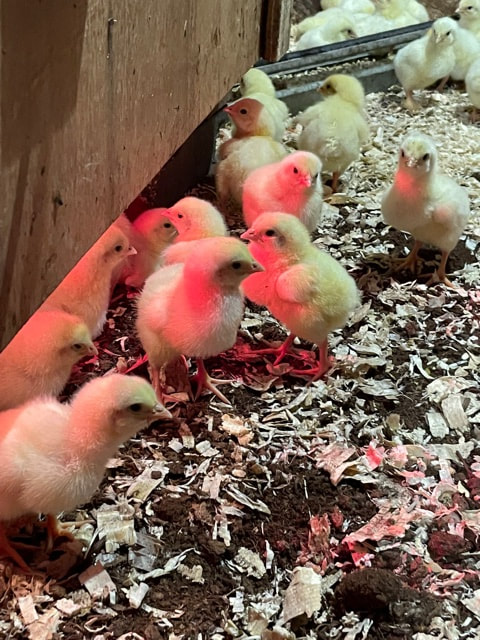
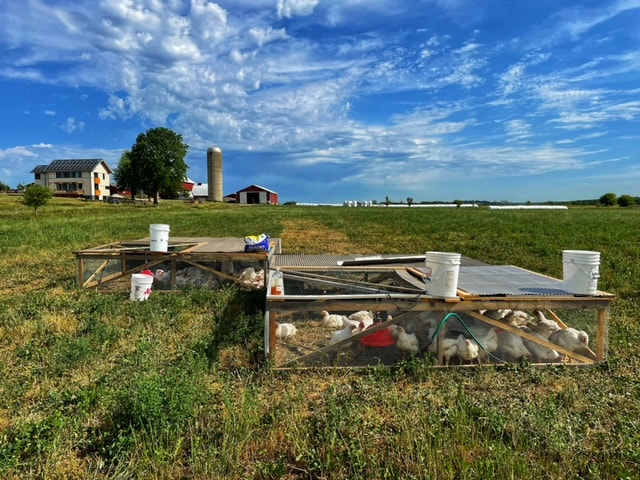
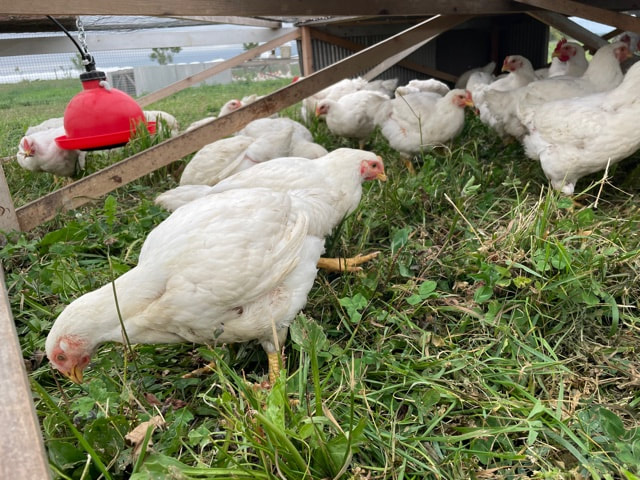
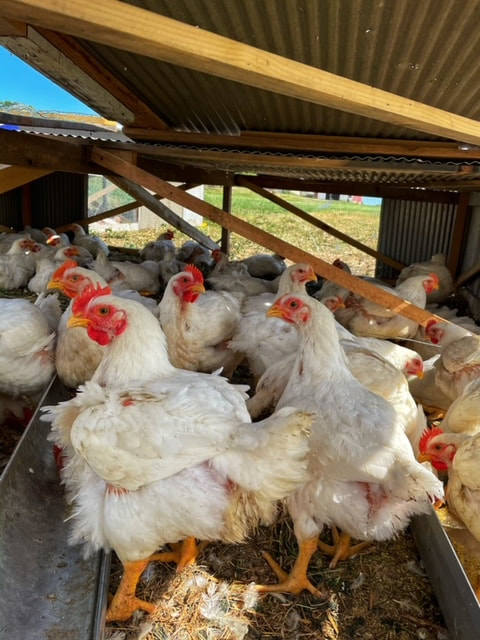
 RSS Feed
RSS Feed

